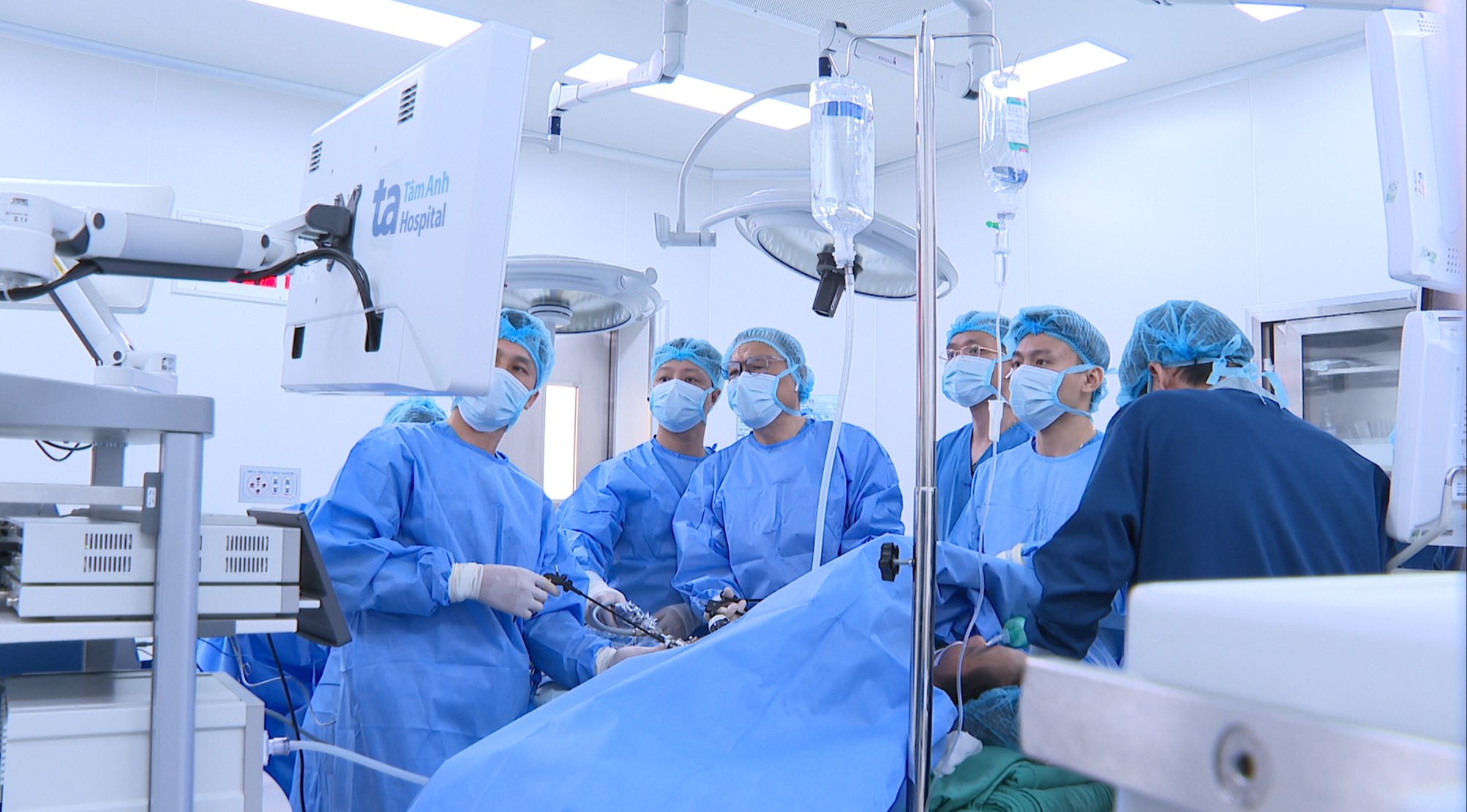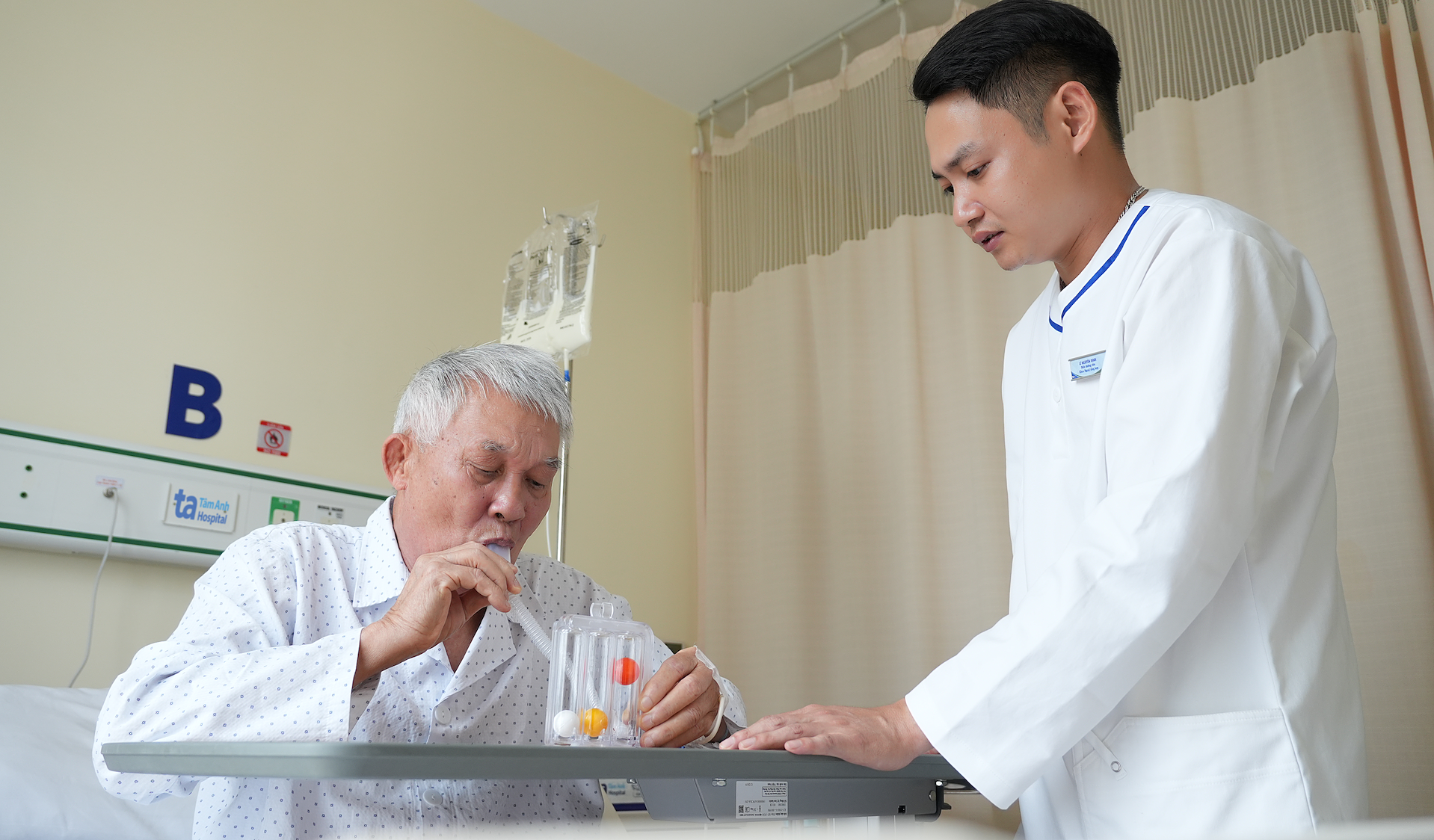A CT scan of Mr. Chien's abdomen and chest at Tam Anh General Hospital in Hanoi, along with a biopsy, revealed stomach cancer that had invaded the subserosal layer. Doctors recommended a near-total gastrectomy combined with extensive lymph node dissection to remove the tumor.
Associate Professor Trieu Trieu Duong, Director of Surgery, assessed that given the patient's advanced age and weakened condition, open surgery would offer a wider field of vision and easier direct manipulation, but carried a higher risk of blood loss, prolonged post-operative pain, and slower recovery. Laparoscopic surgery, on the other hand, would be less invasive, cause less pain, and reduce the risk of infection. This approach would lead to faster recovery, thus lessening the strain on the cardiovascular and respiratory systems. However, the limited view through the camera and reduced maneuverability in laparoscopic surgery could prolong the operation time.
Associate Professor Duong used laparoscopic equipment combined with an ultrasonic scalpel to remove the lower half of the stomach, including a 3x4 cm ulcer, and dissected the surrounding lymph nodes. The team then reconstructed the digestive tract, connecting the remaining portion of the stomach to the small intestine.
 |
Associate Professor Duong performing laparoscopic gastrectomy to treat cancer. Photo: *Tam Anh General Hospital* |
Post-operatively, Mr. Chien was alert, the incision healed well, he experienced no hemodynamic instability, and his digestive function was good. He resumed a light diet after a few days, began early rehabilitation, and recovered well. He will require ongoing post-operative check-ups and an evaluation for adjuvant therapy.
During his post-operative monitoring at the hospital, Mr. Chien underwent an embolization procedure to address urinary retention caused by pressure from a prostate tumor. One day after the procedure, he responded well and the catheter was removed. 10 days after the surgery, Mr. Chien was discharged in stable condition with no complications.
 |
Mr. Chien undergoing post-operative rehabilitation. Photo: *Tam Anh General Hospital* |
According to Globocan 2022, stomach cancer, a type of gastrointestinal cancer, is among the 5 most prevalent cancers in Vietnam, with nearly 17,000 new cases diagnosed annually. Most patients are diagnosed in the late stages when symptoms such as persistent upper abdominal pain, postprandial fullness, weight loss, vomiting blood, or black stools appear.
The detection rate in older adults is lower because symptoms are easily mistaken for common digestive disorders. Older patients often have underlying health conditions and weaker overall health, which complicates treatment and increases the risk of complications.
Individuals over 50, with a history of H. pylori infection, previous stomach ulcers, or a family history of stomach cancer should undergo regular endoscopic screenings. If experiencing persistent symptoms like Mr. Chien, early examination is crucial for cancer screening to avoid missing the optimal time for potentially curative treatment.
Khue Lam












